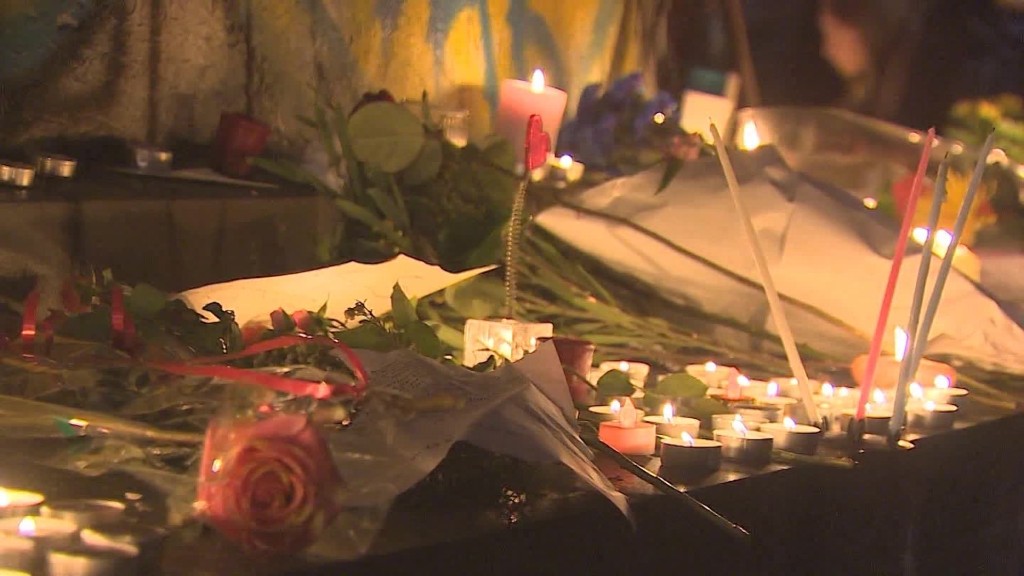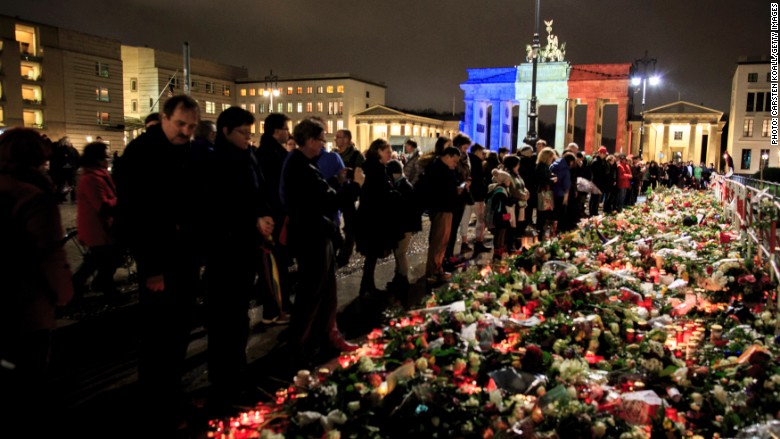
Most of Paris will return to business on Monday, but under tough security measures that are likely to change the face of the city.
The French government declared a state of emergency on Friday following the deadly terrorist attacks and announced three days of national mourning for the victims.
The city was brought to a standstill at noon, holding a minute's silence for the victims. Traffic was held and some public services were temporarily close to mark the occasion.
The emergency declaration gives Paris authorities exceptional powers, such as the right to set curfews and close public spaces.
Public events in Paris have been canceled. National monuments, tourist sites, and many retail outlets were closed over the weekend. Disneyland Paris will remain closed over the three days of national mourning.
The Louvre museum will be closed on Monday morning, reopening in the afternoon. The Eiffel tower will also open on Monday.
The Paris stock exchange will open as usual on Monday with extra security measures in place. Traders are bracing for a sell off following the attacks, although analysts say markets should recover quickly.
Most shops are expected to open on Monday, but business is likely to be slower than usual in the aftermath of the attacks.
The government announced schools and universities will reopen on Monday, but school trips are canceled until next Sunday. All public gatherings in Paris have been banned until at least Thursday.
"[The attacks are] obviously likely to significantly hit the Paris economy in the near term, and there could also be a knock-on effect elsewhere in France," said Howard Archer, the chief European economist at IHS.
Paris terror attacks: Full coverage
Paris is the world's third most popular city for tourists, with over 16 million visitors expected this year. But the events on Friday have forced many to change plans and cancel their trips.
The French authorities tightened security at airports and train stations.
France is part of the European area of free movement and has an open border policy with most of its neighbors, including Belgium, Germany, Italy and Spain. But the attacks on Friday forced France to close its borders and introduce controls on movement.
The two major airports serving Paris -- Orly and Charles de Gaulle -- warned travelers to expect delays, because of tougher controls.
Air France, the French flagship carrier, said it was operating its flight normally, but said delays are likely. The airline is offering its customers the option to postpone their trips or exchange it for vouchers.
Eurostar, which operates trains between Paris and London, as well as other major cities in Europe, also asked passengers to allow for more time to complete security checks before departures.

